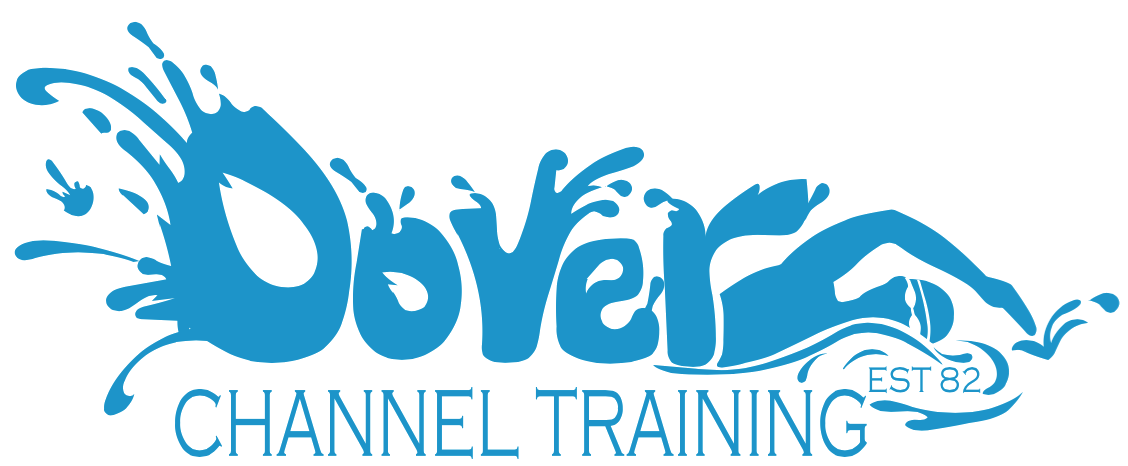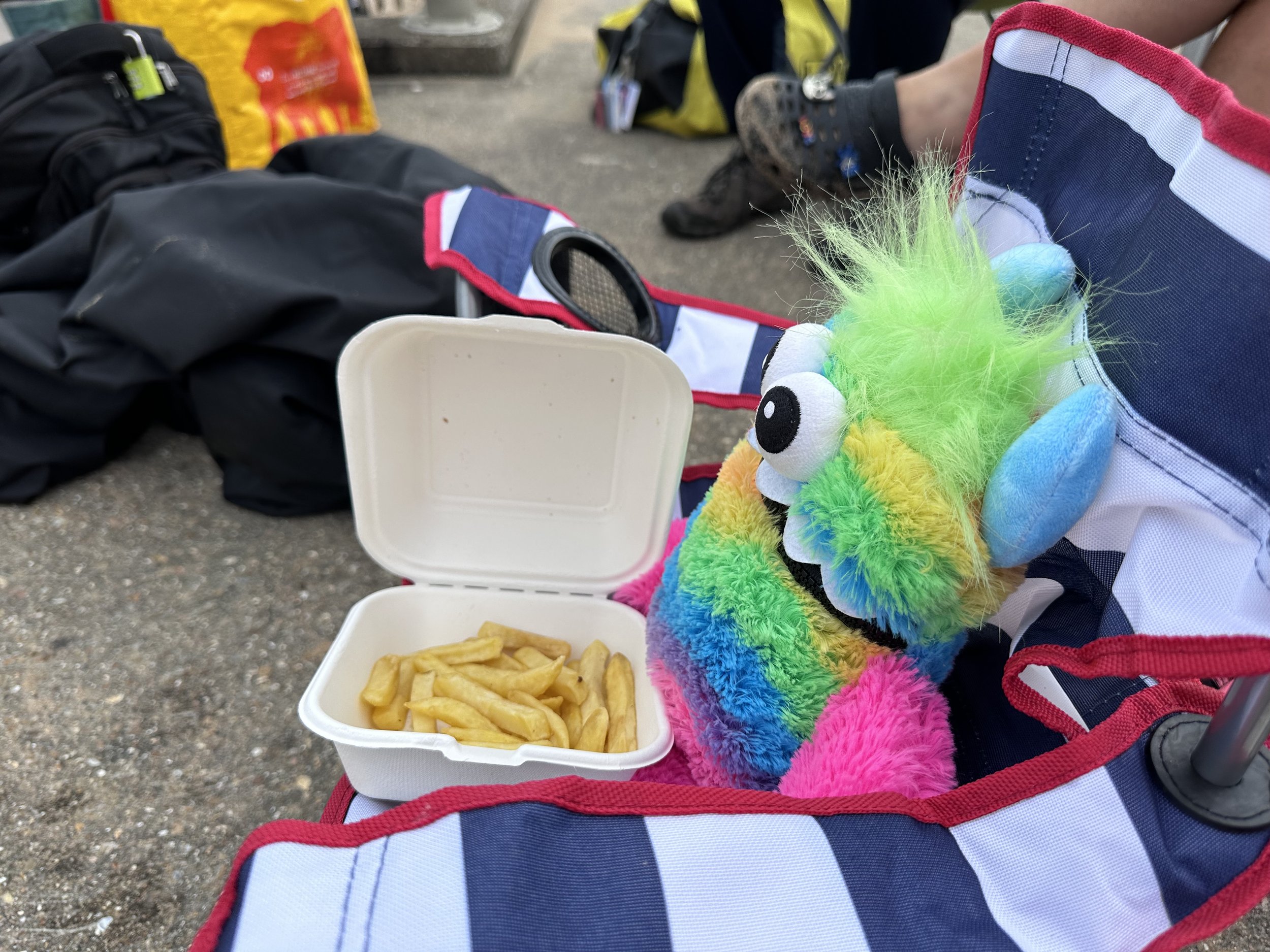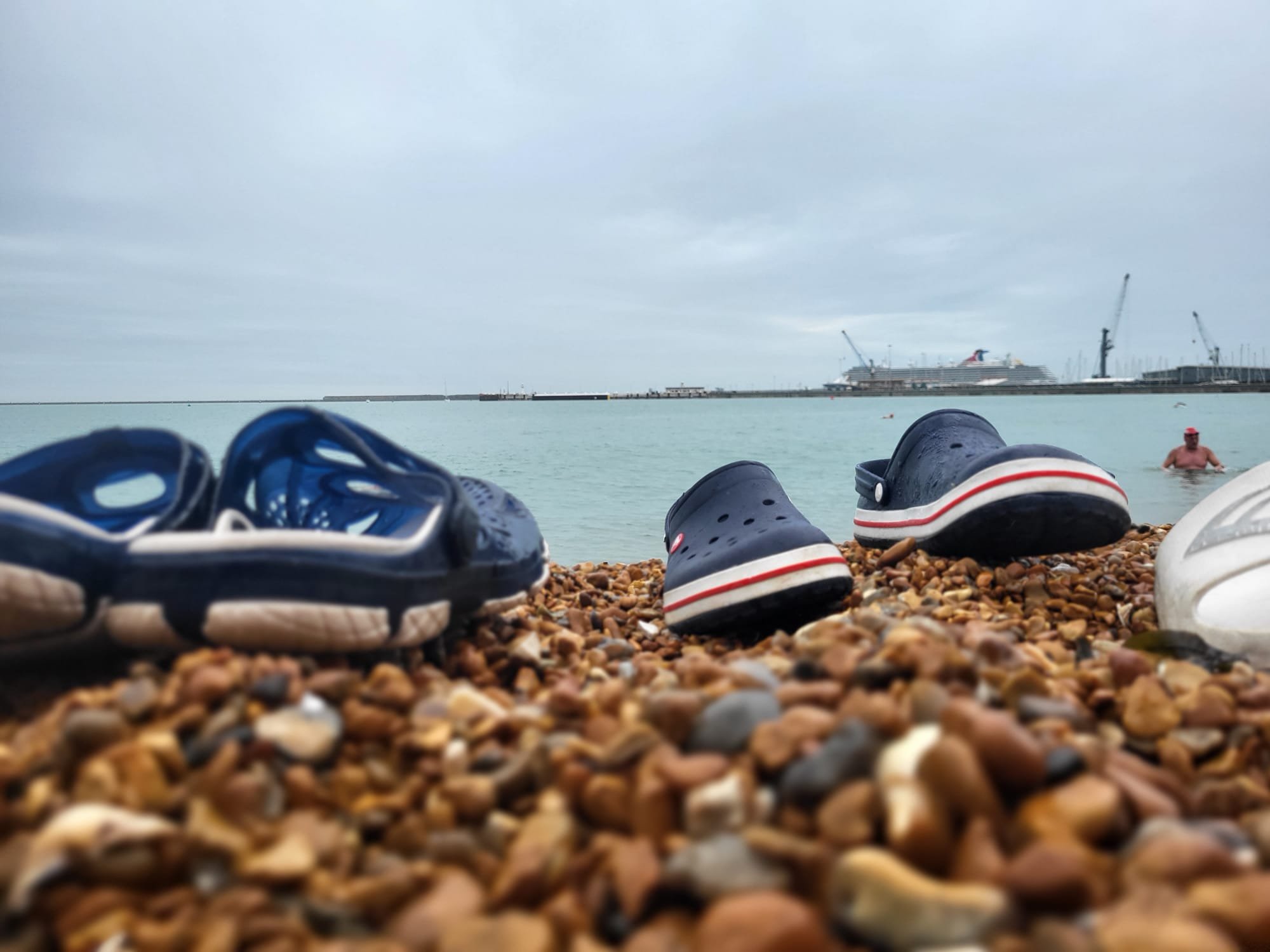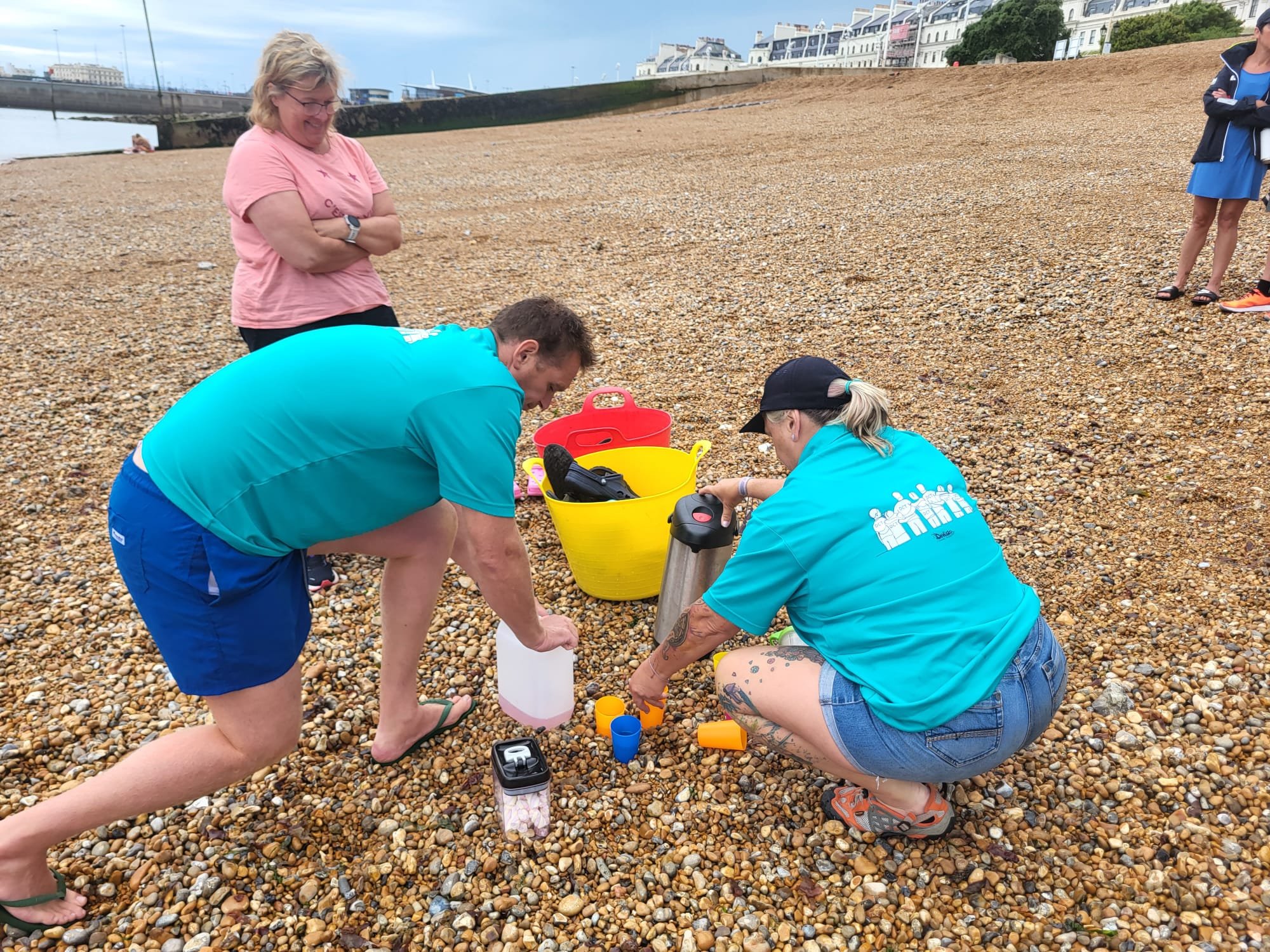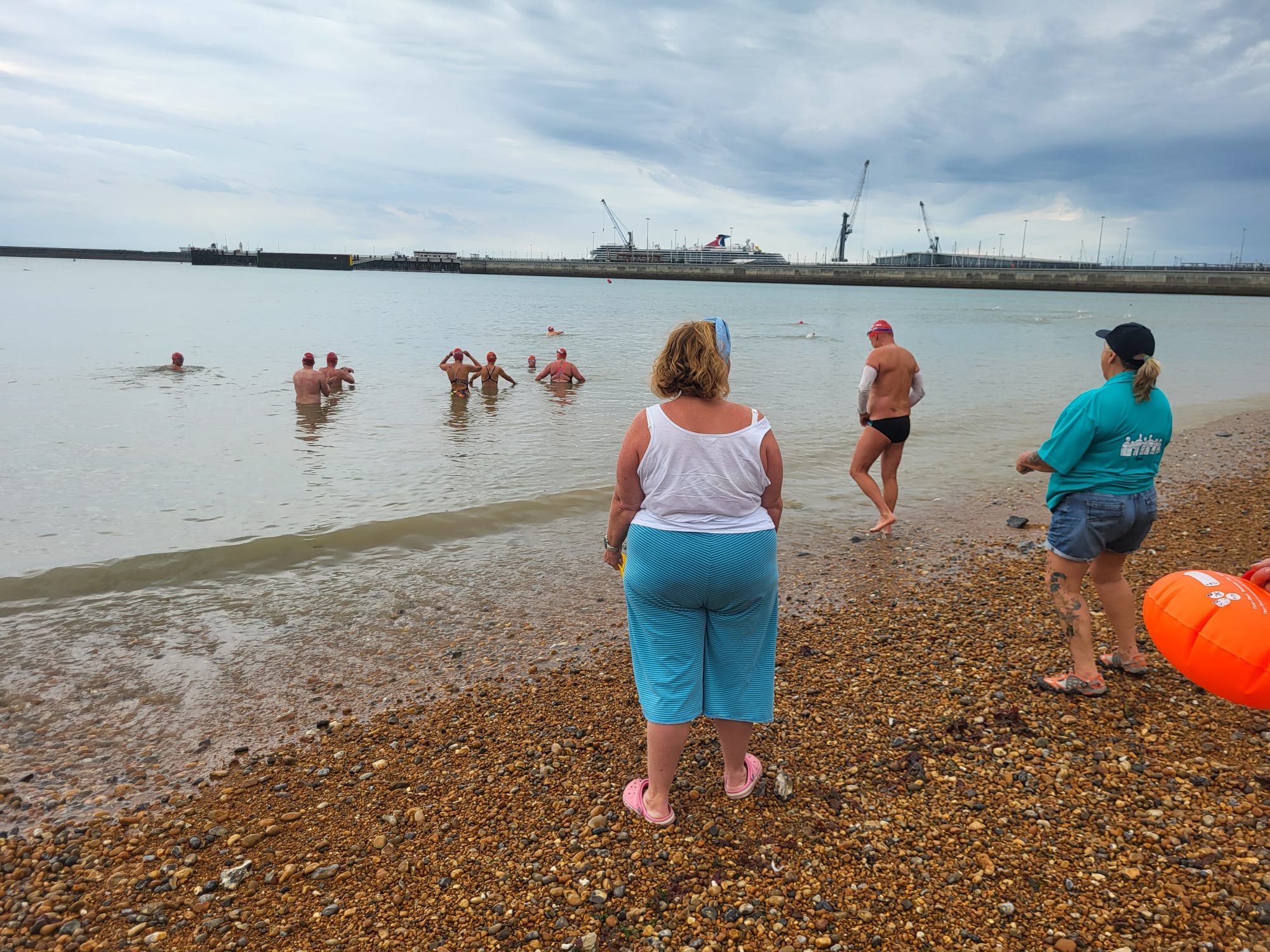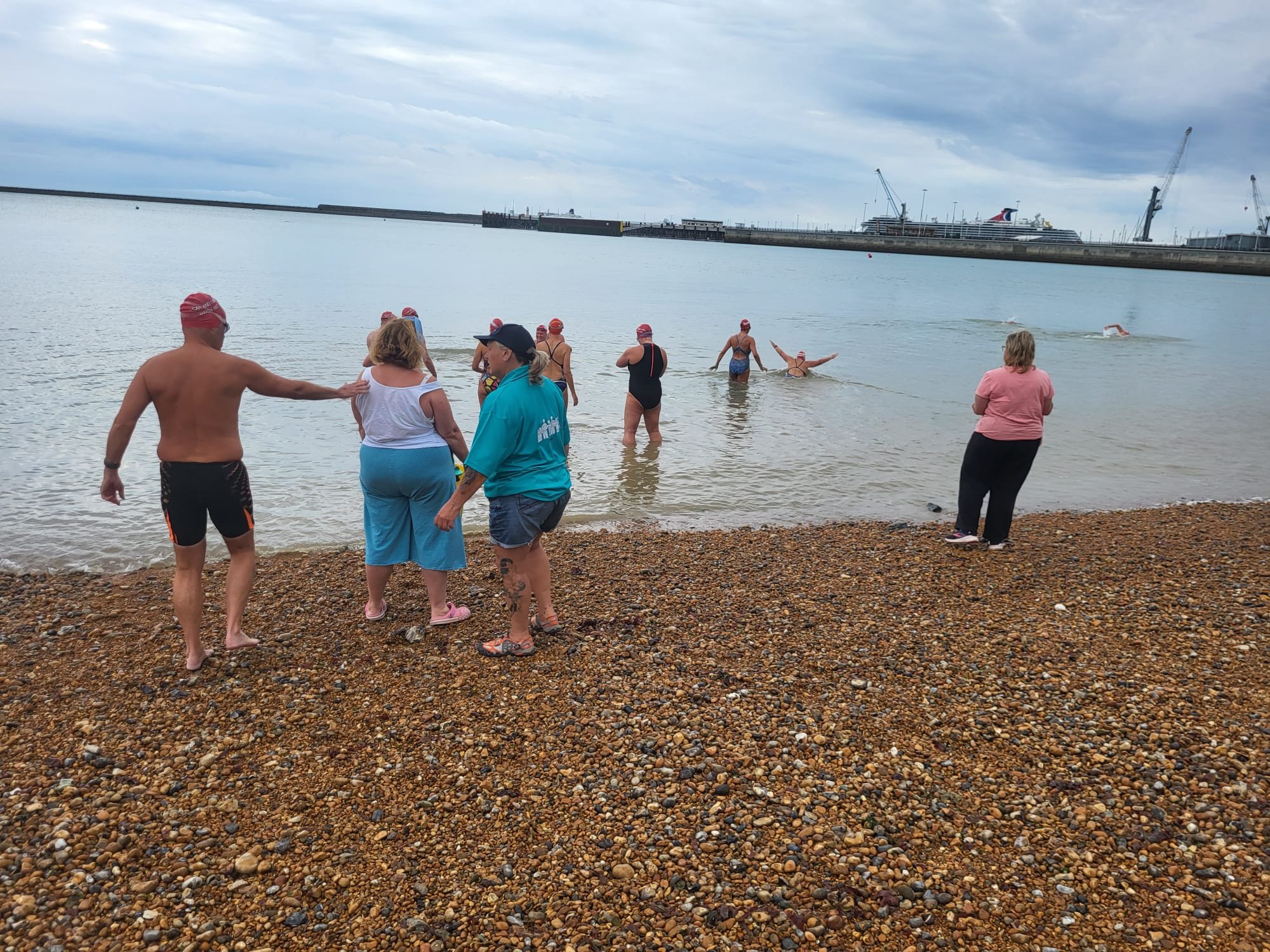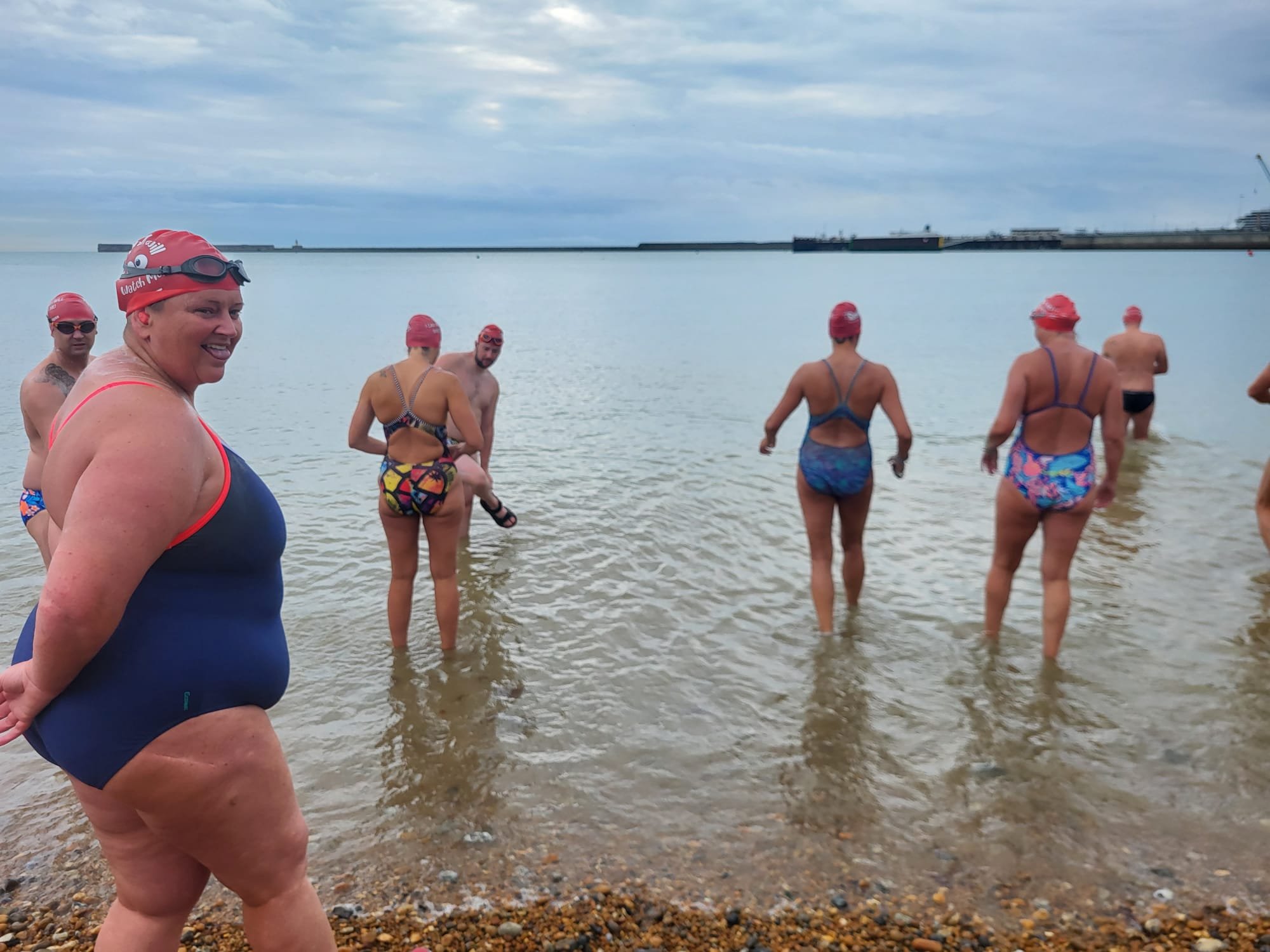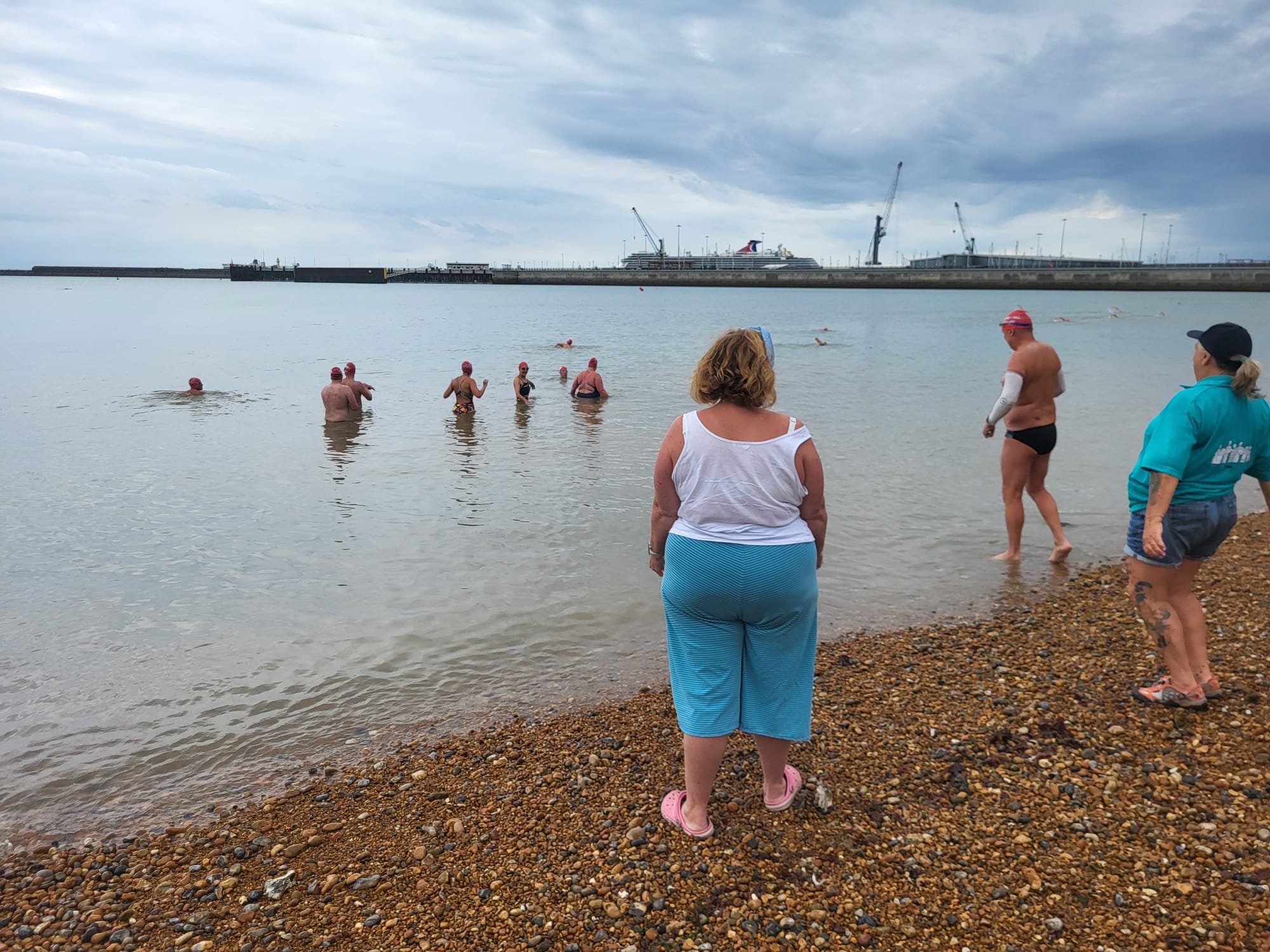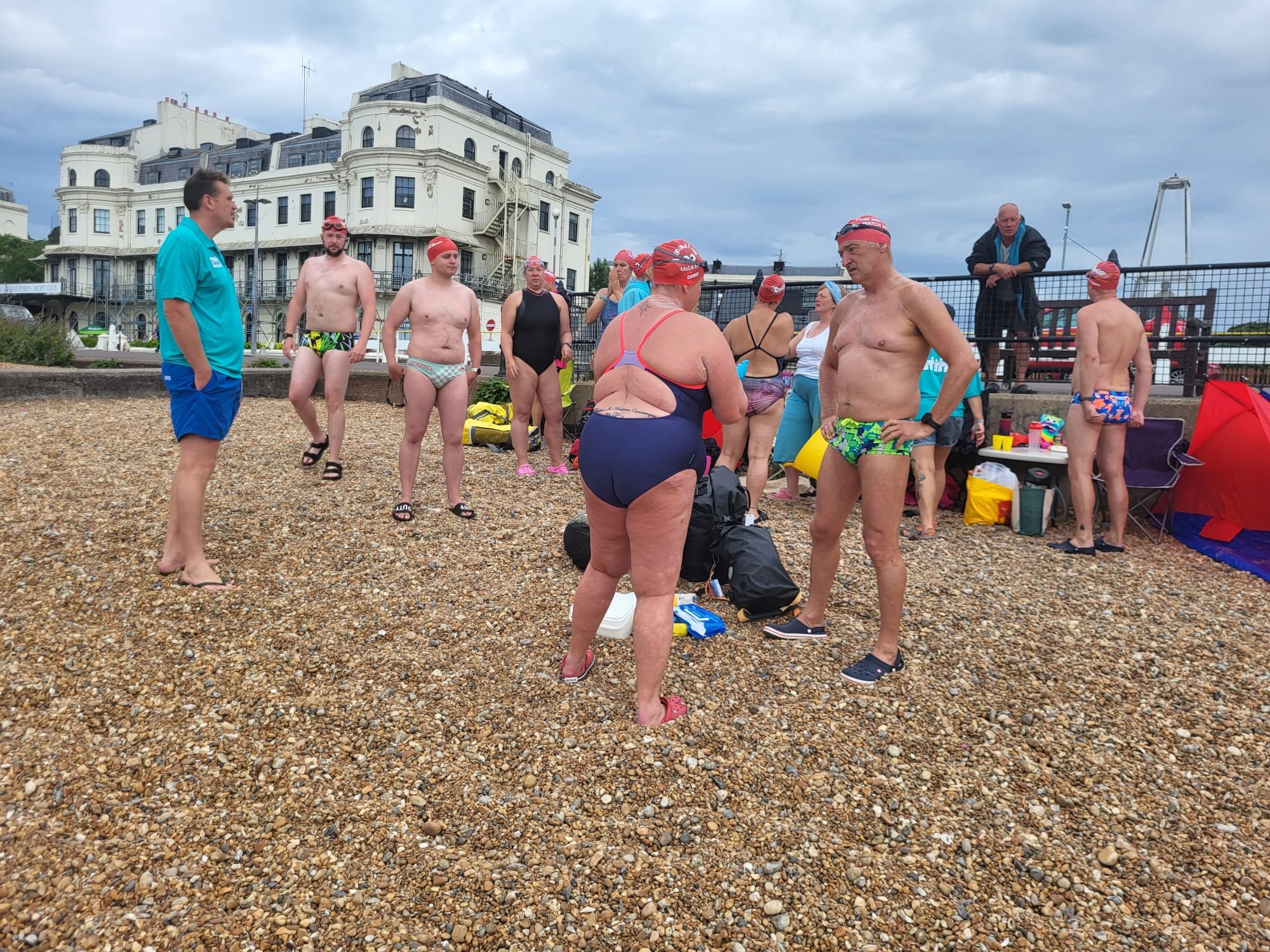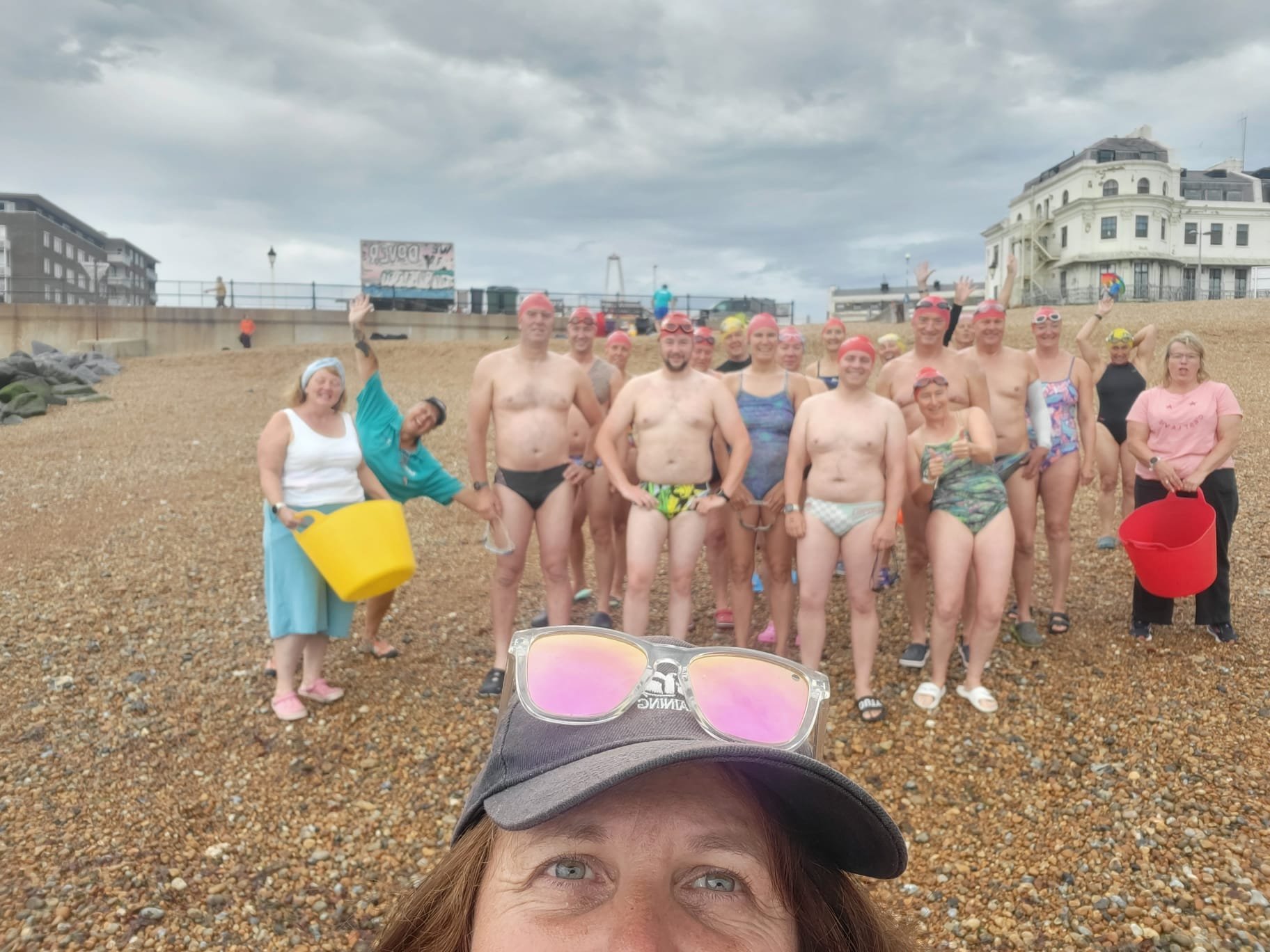Week 11 - Practicing patience ⏰🤪
“To lose patience is to lose the battle.”
Week 11 in review
A weekend which gave an opportunity to refine your skills - testing feeds and equipment for the big day. If you’ve been thinking about testing things out, that’s what training is for. Test out anything that you plan to do on the big day and then on the big day you’re just repeating things that you’ve already done in training. Embrace the process, the whole process. If you want to try something, we’ll do our best to facilitate. If you would like to bring your crew along to see how you swim, how to mix feeds etc, they would be most welcome.
At the beginning of the season I often say that there’ll come a time when I say ‘3 hours’ and you’ll say ‘what only 3 hours’. When I say this people often laugh and say that they’ll never think that. Yet every year it happens. This weekend was one of those times. The cry of ‘Just 3 hours!!’ rang out a few times as you are approaching your final weeks before your big swims.
I love the community spirit within this group. We were all new once, most of us can remember our first session, I certainly can. Thank you for welcoming new swimmers this weekend and on every occasion. Thank you for buddying up. We hope you enjoyed your first sessions and we’ll look forward to seeing you again.
We’re halfway through the training season now and you’ve got the hang of the essentials like arriving on time and giving your number. It makes such a difference to the volunteer team, it means that everyone gets to enjoy the day. Thank you.
Jellyfish remained present, but are old news now. Another thing that people sometimes worry about for the big day and you now know that there really isn’t any need to be concerned. Hopefully, they’re a bit like bullies, now they know you can handle it, they’ll disappear off somewhere else!
We have a lot of swimmers tapering for their big days. Waiting patiently for their opportunity to finally swim in a straight line. Good things come to those who wait, so as annoying as it can be to wait, it will be worth it.
Note: Water temperature taken during the swim session in the harbour. Air temperature, wind direction & wind speed taken from the Port of Dover app.
Saturday:
Swimmers: 16
Water temperature: 16.2C
Air temperature: 26C
Conditions: Flat with Jellyfish
Sunday:
Swimmers: 18
Water temperature: 17.2
Air temperature: 20C
Conditions: F4 SSW. Water flat with algae and Jellyfish. Rain
Shout outs to …..
Here are a few of the big achievements from this weekend
Dominic B & Lucy AP for your 5 hour swims
Vanessa D & Kevin McC for your 6 hour swim
Laura S for your back to back 6 hour swims
Mel H for your 20km & 15km weekend
Mark K for your 7 & 6 back to back weekend
If I missed you, I apologies, please shout about it. As well as the achievements that are measured in hours or badges, there are also those more important personal victories, I’d love to hear about those as well.
Thank you!
Thank you to the following volunteers who were on the rota for the weekend:
Level 1: Mandi B
Level 2: Vikki C; Zoe G; Kevin M
Thank you to all Level 3 volunteers who helped out a little or a lot. We have made a lot of change to how we run things on the beach and behind the scenes and you are the core of these improvements that everyone benefits from. Thank you 🙏🏻
We are looking to expand our Level 2 volunteer team, if you are interested, visit our volunteers page or contact our volunteers lead.
Channel Swimmer on the beach!
Julie Hacket - Channel Swimmer - 7th July 2023
The news stories are coming thick and fast now. Apologies if I miss including you in this section - nudge me and I’ll humbly edit.
These are the swims that I heard about in the week of this blog:
Rebecca Eden: Coniston Solo: 25th June
Jacqueline Kemper: Round Jersey Solo: 6th July, 11hrs 16mins. Pilot - Matthew Clarke
Kristen Smith: 20 Bridges Solo: 7th July, 9hrs 21mins
Daniel Bateman: Windermere Solo: 7th July
Julie Hacket: English Channel Solo: 7th July, 13hrs 0mins. Pilot - Eddie Spelling
Lucy Payne: English Channel Solo: 9th July, 14hrs 58mins. Pilot - Andy King
Chris Read: English Channel Solo: 9th July, 11hrs 43mins. Pilot - Lance Oram
Walter’s Worries
Weather
I once heard it said that there’s no such thing as bad weather, only inappropriate clothing choices. Well, that may be right when it comes to choosing my clothes to protect my fur on a cold or rainy day, but that person was clearly not an aspiring channel swimmer.
I heard quite a few swimmers talk about how the weather was causing issues. They talked about the Dovercoaster. They said how they’d heard about it at the conference, but hadn’t really understood it (or maybe thought it wouldn’t happen in reality.
The Dovercoaster seems to impact everyone in slightly different ways. There’s the uncertainty which is hard to handle in itself, you also talked about:
worries about crew and what to do if your chosen crew are not available if the date is outside of your booked tide
how to handle time off from work
handling last minute changes - it’s on, it’s off, it’s on, it’s off
family commitments for time after your were due to have done your swim
how to handle training when you don’t know when you’re going
when the next opportunity may be if you don’t swim in your tide
how to handle all the questions from your friends and family who don’t understand why you can’t swim during the time period that you thought you would.
That’s a lot of worries.
I’ve asked Emma to talk about dealing with uncertainty and training.
I don’t have a magic wand, unfortunately. I really wish I did. Hang in there.
Good things come to those who wait
Paddlefish Ponderings
Thanks, Walter. It’s nice to use this section to talk about the things that you want help with.
The quote you gave is interesting. I thought I’d look up the origins. I thought that would be easy!! I found lots of potential sources:
This quote, attributed to British author Violet Fane (Mary M. Singleton) in 1892, may be true but it leaves out important parts of the story. Good things may come to those who wait, but only after certain important conditions have been met:
Good Things Come to Those Who Wait (If They Also….)
Work hard
Use what they are learning to help others
Keep working hard
Improve but still keep learning
Keep using what they learn in service to others
Don’t give up, even when progress is slow and success is uncertain
….and so on (perpetually repeating numbers 1-6 above)
Doing these things keeps people in a service mindset, making it easier to wait for good things to happen. And, of course, while they are working diligently, they are not just waiting. Without the rest of the context, the quote seems to imply that just “waiting” is enough.
“Good things come to those who wait” is an English proverb. It’s used to describe the benefits of waiting patiently rather than rushing into something.
The proverb “all things come to those who wait” means if people are persistent and patient, they will finally achieve their goal. In other words, it means a person must exercise patience exercise when working on something close to his heart, even to reach the goal he/she desires. The phrase is mostly used when encouraging someone to be patient and wait. Everything will ultimately come to him/her when he/she waits for it.
Things may come to those who wait, but only the things left by those who hustle - Abraham Lincoln
Good things come to those who wait (Guinness), a UK advertising campaign for Guinness stout in the 1990s and 2000s. The campaign was to turn around the negative consumer opinion of the length of time required to correctly pour a pint of Guinness from the tap, usually quoted as 119.5 seconds, as well as to encourage bartenders to take the time to do so.
Good things come to those who wait (Heinz), a US advertising campaign for Heinz ketchup in the 1980s
I like the interpretation where patience is rewarded, but that you can also make a difference to the outcome by the actions that you take (i.e. you are more in control of your destiny that you think). We talked about this at the conference in the goal getting section. We articulated what your goal is (e.g. a successful channel swim) and the fact that it’s not enough to ‘put it out there’ and hope that you will be successful, you still need to take massive action. Your training is part of ‘taking massive action’.
Let’s look at this unwelcome challenge in the same way. Let’s identify what actions do remain in your control. You may surprise yourself as to how much you can still control.
Embracing Uncertainty
It’s not just your big swim plans that have an element of uncertainty. We live in a world full of rapid changes and unforeseen challenges. Uncertainty has become a constant companion.
In our sporting plans, our personal lives and at work, uncertainty has the power to evoke fear and anxiety. However, it is crucial to recognise that uncertainty is not necessarily negative; rather, it presents a multitude of opportunities for growth and success. Embracing uncertainty with a positive mindset can lead us to undiscovered possibilities, enhance our resilience, and enable personal growth.
You faced uncertainty each week when you turned up for training. How long would you be asked to swim? What would the water be like? Which swimmers & volunteers would be there? That became normal.
Our sport as a whole is fraught with uncertainty. In most sports you know when you’re going to start down to the day AND time. We know neither of these things with certainty. We have a rough time frame which we use to plan around. Emotionally, that feels like certainty. Then along comes a period of bad weather (it happens every year) and the certainty that we felt we had, suddenly crumbles. We realise it’s only superficial. There are other times you realise it too, like when friends and family ask questions to which you don’t have an answer:
“What date is your swim?”
“What time will you start?”
“How long will it take?”
“Where will you land?”
“Where do you put your passport?”
OK, maybe not that last one!
When your the outcome of your goal depends on other factors, suddenly we can’t control everything.
If you look deeper at the other sports that appear to have certainty, you realise that they aren’t as certain as you may have first thought.
I imagine Michael Phelps set a goal of winning an Olympic gold medal. Sounds easy enough for someone like him, but there is uncertainty, or things outside of his control, as his outcome banked on not only his performance but the performance of others as well. He could influence his performance through his training, but not the performance of others. Although that said, I could tell you a story about Linford Christie and his approach to controlling that uncontrollable, but that’s a conversation for another time!.
Embracing uncertainty enables us to explore uncharted territories and discover new paths. When faced with unfamiliar situations, we are forced to question our assumptions and extend our comfort zones. By stepping into uncharted waters, we open ourselves up to opportunities that we didn’t even realise were possible.
You did this every time you set a new training personal best, every time you realised that you could cope with temperatures, conditions, durations that you hadn’t before. You got to the point where 3 hours became, 'what just three hours?’. Jellies were a fear for many and have become a mere annoyance. Your comfort zone has shifted.
Uncertainty builds our resilience and adaptability. Whilst not necessarily what we would choose, sometimes the outcome can be better than we ever would have planned.
There are other fun opportunities carved out of the tough times. I sometimes find myself composing some of the write up I’ll do of my swim, before I even start the swim. Imagine yourself telling your story and the gasps with all the twists and turns. In the grand scheme of things, this is a small blip in the journey. You can and will get through it.
This uncertainty can lead us to ride a roller coaster (Dovercoaster) of doubt and uncertainty, energy that is better spent focusing on our process and the things we actually control.
By throwing all your attention and focus at the uncertainty of the outcome, you bypass or ignore all of the the positives of the sport we love and the things that we can control.
Here’s an idea to keep you busy whilst you wait for the next update from your pilot, how about you take a moment to look at all the unplanned opportunities that you have found as a result of your your journey so far?
Take a sheet of paper and write down the reasons you love this crazy little sport of ours. The people you meet. The things you’ve learned about yourself through challenging your comfort zone. The shared experience with other people playing the same waiting game. The thrill of the trackers firing up. The excitement of hearing the ‘Channel Swimmer on the beach’ whistle. Never being too old to earn a badge.
And so on.
There are plenty of reasons why you’ve trained and got yourself to that privileged and unique place of being fit and healthy enough to even stand on that beach ready to do the swim of your life. These reasons have nothing to do with the weather, infact poor weather in training has made you a better and a more resilient swimmer for when your big day does come.
Because this swim is special and so are you, it is worth waiting for.
My Dovercoaster experience
If I think back to my first successful channel solo in 2009, I also rode the Dovercoaster, though it wasn’t called that then. I was booked for the end of July and my pilot was Alison Streeter. I had already had two swims that season.
One was an unsuccessful Lake Zurich swim. For some reason the feed didn’t agree with me on the day. Whilst I kept going until the 12 hour cut-off, my swim timed out with a few km to go. With pretty much no fluids or calories throughout that swim, I was left without a successful outcome
A channel relay. A great day out. It was actually a race between two teams with pilots being Alison & Neil Streeter
After Lake Zurich I needed a new feeding plan, but nothing worked. Everything made me sick in training. At the point where that became literally everything, including water, I realised that the feeds were not the problem, the problem lay inside of me.
My tide came, and went. I was blown out. I was pushed to the end of the next tide.
Next tide came, and went.
The next tide was the end of September and my head went. The term Dovercoaster may be a recent term, but I was definitely riding it, against my will. No feeding plan and the end of the season upon us. I told Alison that I would wait until next year, I wasn’t brave enough to tell her to her face so I put it in an email. I told everyone who had sponsored me that I wouldn’t be swimming this year and offered to refund them. Alison called me. She had other ideas. She suggested we go ‘under the radar’ and keep numbers on the boat to a bare minimum.
The challenge was that I was creating failure. My swim would not be successful without dealing with that. So I went to see the person who trained me in NLP to deal with whatever it was in me that was self-sabotaging. A few things came up:
I’m a crap swimmer, I shouldn’t be able to do this
Every time I do something crazy, I plan the next thing which is even more crazy (I couldn’t imagine anything bigger or more crazy then this)
I had some things that I needed to deal with in my personal life once I completed this swim. Failure would mean I could run away from those things for a while longer
We dealt with the root cause of these issues, issues that I would not have dealt with had I not experienced the Dovercoaster.
Eventually my time came, 27th September 2009. Yes, I was nervous. No I didn’t think I could do it. The nerves settled as I settled into my swim and I absolutely loved the first 12 hours. My patience was repaid with stunning conditions. Yes, it was a long swim. Yes, I had a sense of humour failure towards the end. No, I was not sick, not even nauseous. It never crossed my mind to stop.
I entered the water in Dover and left the water a channel swimmer.
In my case, the Dovercoaster did me a favour, one that was far bigger than swimming, despite the fact that I didn’t enjoy the Dovercoaster ride.
Good things came to me because I waited. But I didn’t just wait, I took action whilst I waited. I took the actions that were right for me at that time.
What actions can you take while you wait?
Training and the Dovercoaster
So, you’ve trained well, and timed your taper to perfection, and then you’re blown out. What now? Do you do a big swim again while you wait or do you just keep ticking over.
That is the million dollar question.
If you’re training with us, we’ll have a chat before each session to find out what your next likely swim date is, how you’re coping and we will suggest a training duration, you can hand over that challenge to us. The class of 2023 have been diligent with their training and all those months of work are right there, in the bank. A few days or weeks of delay will not change that. If you keep ticking over, you’ll be primed and ready to go. There’s no need for big heroic swims. The kind of endurance you have will stay. What it does mean that when the day comes you’ll be so well rested that you may well be desperate to just get on with it.
Use the time you have to work out what elements of your plan you need to adjust. You may need to replan:
time off from work
crew: which crew can still help and if you need to identify new crew
any hotels or accommodation
Keep it simple, let the drama wash over you. Your time will come and this will seem like a short moment in time with retrospect. It will all make for a great story.
If you have questions or things that you don’t know how to approach, chat to one of the volunteers who have experience like this or perhaps join one of the community calls.
Looking ahead
On Tour
Once a month we will be On Tour on on a Saturday:
Saturday 15th July
Saturday 19th August
Saturday 16th September
The location will either be Hythe or Ramsgate, depending on the weather forecast. The final decision will be made on the Thursday evening before this swim. These sessions are shown as ‘On Tour’ in the booking system, they are considered ‘standard’ training sessions and are included in training packages.
Night swims
There are no further night swims planned for this season.
Spotlight in the shop
As you get close to the big day, and plan all the kit that you’re going to take, we have some very useful kit including:
carabiners
feeding bottles (though milk bottles work very well)
feeding reels
adventure lights (or replacement batteries
If you haven’t already bought your adventure lights, you’ll need 2 for a soloist (plus 2 for any support swimmer that will join you in the hours of darkness. Relay teams will need a minimum of 2 sets (4 lights) between them - one set for the swimmer in the water, one set for the next swimmer in.
If you already have lights and they’ve become a little dim after a lot of use (and that would be a lot of swimming as they last 240 hours!), we also sell replacement batteries.
Don’t miss out on this safety essential. They’re great for walking the day afterwards too 🦮
Photos
A few photos from the weekend….
Key Contact methods
Please do not contact Emma directly as you’ll likely find that she doesn’t have time to respond to your message in a timely manner. Emma is one person with a very demanding full time role and part time additional responsibilities on top of long-covid and what she does for DCT. You may be one person with a simple question, unfortunately there are several hundred other similar people. We have put these contact methods in place so that you can get answers to your questions in a timely manner without any one person being overwhelmed.
On the beach after training. Our Level 1 volunteers will be happy to chat whilst not engaged in core safety processes.
Weekly community call. This runs on a Monday evening from January to September and is hosted by a member of the leadership team. We've set this time aside for you. You can find details of these call within the membership area and within the booking system.
Membership queries can be directed to our Membership lead
Safeguarding concerns should be directed to our Safeguarding Lead
Other queries that can’t be answered at the community call should be directed to the Swimmer Liaison lead.
Other more informal routes to support:
Reminders
Remember to book your sessions online. Bookings close 48 hours ahead. Any bookings after that will need support and that comes with a £5 admin fee.
Bookings can be cancelled or rescheduled up to 48 hours ahead. The system doesn’t arrange automatic refunds, so if you would like a refund, please check out our refund policy and get in touch if you would like a refund.
Those of you with training subscriptions, enter your email address and click in the discount code box and your automatic voucher should appear. Let me know if you have any trouble with this.
Please remember to cancel your membership when you no longer want it.
